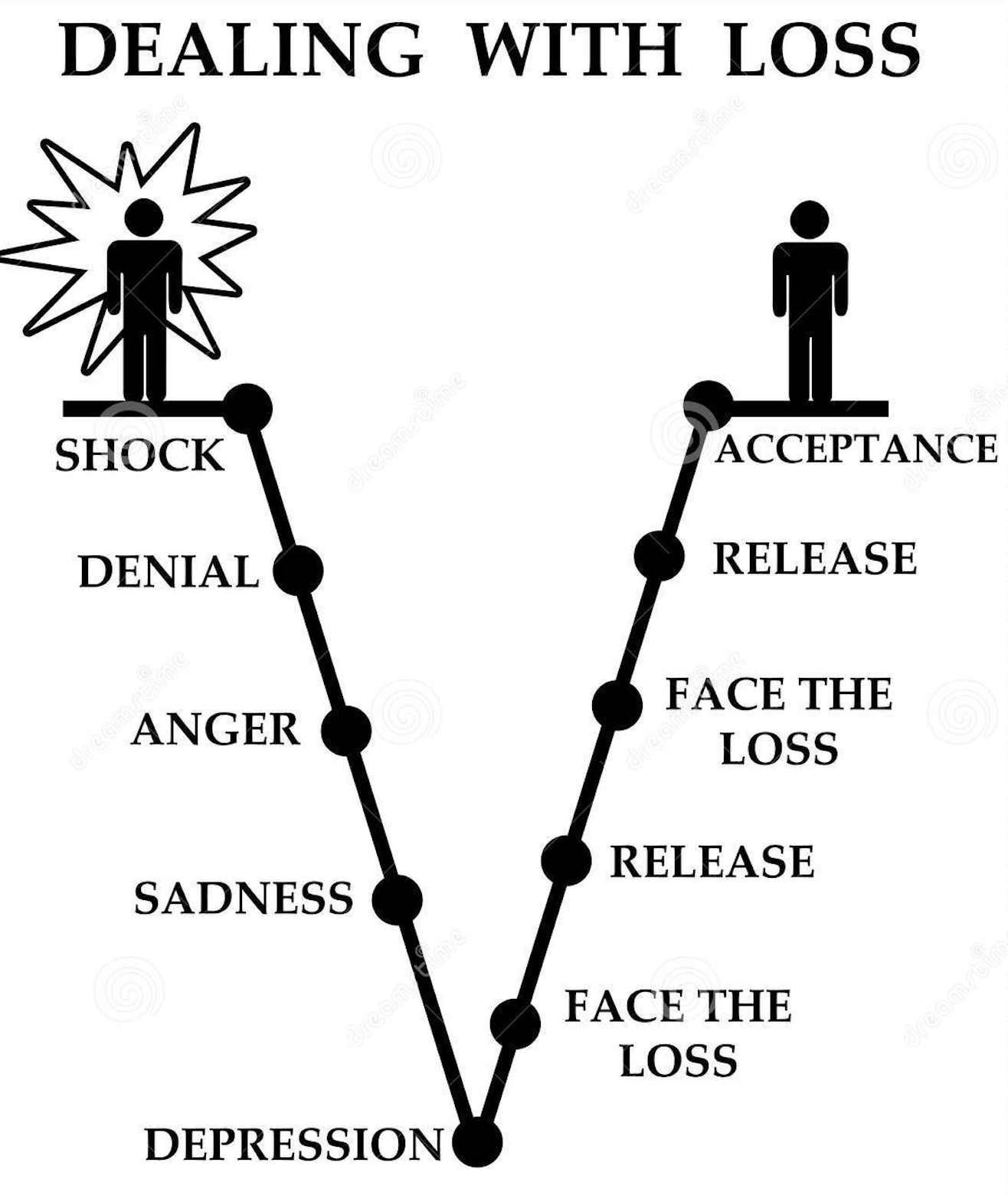Grief, What is it Good For?
As I write my next book, Death, What is it Good For?, I have had the opportunity to interview a wide variety of people on the subject of grief and death, from leaders of different religious denominations to mortuary and cemetery owners, death doulas, and others who have lost loved ones, and those going through a divorce or lost their jobs or home. I have heard many different perspectives on this topic. Seeing how many positive things can come from grieving and accepting death with the right mindset has been eye-opening.
In my upcoming episode on A Dose of Positivity, I am excited to have Cindy Little who will delve even deeper into this subject. Please join us for what promises to be an enlightening discussion and if you know anyone who might benefit from my words, please share this post with them.
Grief is a complex and powerful emotion that can be difficult to navigate. Whether we are experiencing the loss of a loved one, the end of a relationship, or a significant change in our lives, grief can be overwhelming and all-consuming. However, while grief may be painful, it is also an important and necessary part of the human experience.
Losing a loved one is undoubtedly one of the most challenging experiences that life can throw at us. The feeling of grief can be all-consuming, leaving us feeling lost, alone, and uncertain about what the future holds. But as someone who has experienced and grown through grief, I wish to share some insights with anyone grieving and struggling to find a way forward.
Firstly, it's important to recognize that grief is a natural and necessary process. It is an emotion we all feel. It's not something you can rush or force yourself through, and there's no set timeline for how long it will last. However, the benefits of processing grief are enormous. When we allow ourselves to feel our emotions and work through them, we allow ourselves to heal, grow, and move forward.
One of the key things that can help you prepare for grief is to accept that death is a natural part of life. None of us can avoid it. This acceptance can be difficult, but it can also be empowering. By acknowledging that death is a part of life, we shift our perspective and focus on living our lives to the fullest while we can.
Finding the resilience to carry on can be challenging when you're in the midst of grief. However, resilience is something that can be developed and strengthened over time. One of the best ways to build resilience is to practice self-care. This can include taking time for yourself, seeking support from friends and family, and engaging in activities that bring you joy and comfort.
It's also important to remember that grief can be a powerful force for positive change. When we experience loss, it can inspire us to live more fully and love more deeply. By embracing our love and compassion for our lost loved ones, we can honor their memory and keep their spirit alive.
One of the best things you can do when you or someone you know is grieving is to be present and supportive. Listening, offering comfort, and providing practical support can all help to ease the pain of grief and give a sense of connection and support. Often, simply being there for someone grieving can make all the difference.
Another way to cope with grief is to observe Nature. Nature can be a powerful source of healing and renewal, reminding us of the cycle of life and death and the constant process of change and transformation. Whether it is the changing of the seasons, the birth of new life, or the natural beauty of the world around us, Nature can provide a sense of comfort and solace during times of grief.
It is also important to remember that grief should not be feared or avoided. While it may be painful, grief is a natural and necessary part of the human experience, helping us to process and cope with loss and change. By opening our minds to the possibilities and benefits of losing something, we can begin to see how grief can help us grow, learn, and ultimately move forward.
Ultimately, grief is a powerful reminder of the fragility and preciousness of life. It can be a difficult and painful experience, but it is also an opportunity to connect with others, find strength and resilience within ourselves, and ultimately embrace the beauty and complexity of the human experience. So if you or someone you know is grieving, remember to be present, observe Nature, and stay open to the possibilities and benefits of this powerful and transformative emotion.
There is no one-size-fits-all solution to dealing with grief, as everyone experiences and processes grief in their own unique way. However, several proven ways to cope with grief have been found to be effective for many people. Here are some current proven ways to deal with grief:
Talk to someone: Sharing your feelings with someone who can listen and offer support can help to alleviate the pain of grief. This could be a friend, family member, professional counselor, or therapist.
Take care of yourself: Grief can be physically and emotionally exhausting, so taking care of yourself during this time is essential. This includes getting enough sleep, eating a healthy diet, and exercising regularly.
Find a support group: Joining a support group of people who have experienced a similar loss can provide a sense of community and understanding.
Practice self-compassion: Be kind to yourself and allow yourself to feel the emotions associated with grief. Do not judge yourself for your feelings or compare your grief to others.
Express your emotions: Finding healthy ways to express your emotions, such as writing in a journal or creating art, can help you process your grief.
Practice mindfulness: Mindfulness practices, such as meditation or deep breathing exercises, can help you to stay grounded and present in the moment, which can be helpful during times of grief.
Seek professional help: If you are struggling to cope with grief and it is impacting your daily life, consider seeking the help of a mental health professional who can provide additional support and guidance.
Remember, everyone grieves differently, and there is no right or wrong way to cope with grief. These are a few strategies that may be helpful for some people. The most important thing is to be kind to yourself and allow yourself to grieve in your own way and at your own pace.
While the pain of grief can be overwhelming, it's important to remember that it's a natural part of life. We can use our grief as a catalyst for personal growth and to find meaning and purpose in our lives. By accepting and processing our grief, we can find the strength to carry on and even use our loss as a source of inspiration and growth. So, if you're grieving, know that you're not alone and that there is hope for healing and moving forward.
I invite you to share this post and please comment below, with your thoughts and insights as you are helping others. 💕
🥰 A Dose of Positivity
See you all this Thursday for another supreme Dose of Positivity with my special guest, Cindy Little who will share about how to reflect on life and to grow through grief. 💕
Need some Mama Donna love? 🥰











